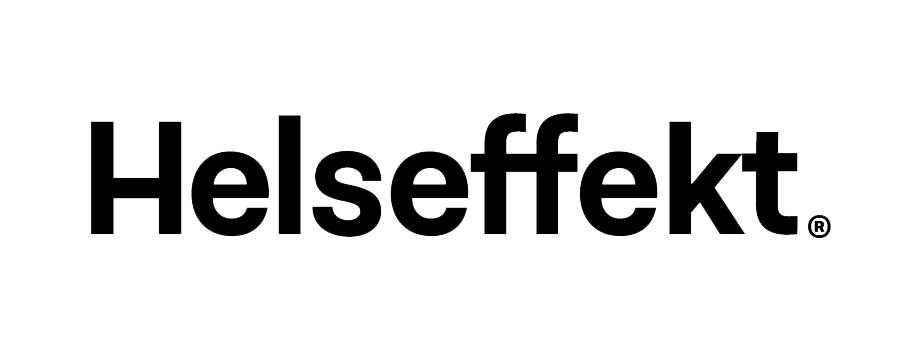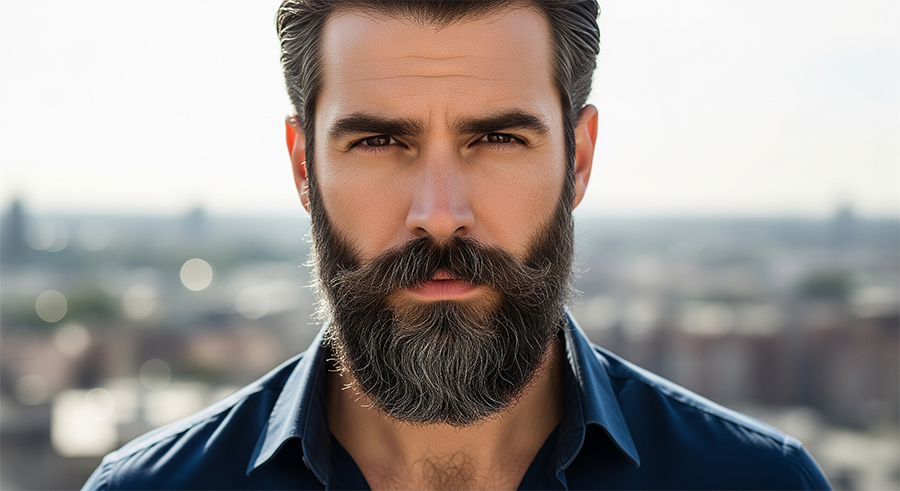beard care, Skin care
The Secret to a Flawless Beard: Nutrition and the Science of Facial Hair
Uncover the Secret to a Flawless Beard: Nutrition and the Science of Facial Hair
A healthy beard isn’t just a matter of luck; it’s a direct reflection of your internal well-being. Did you know that a thick, shiny, and strong beard indicates that your body is receiving essential nutrients and is in balance? As they say, true beauty “comes from within.”
When your body lacks key nutrients, it prioritizes vital functions, and beard growth can be affected. A dull, brittle, or excessively thinning beard can be a sign that something in your diet or lifestyle needs attention. It’s a subtle, but important sign.
In this article, we’ll explore how your diet and lifestyle habits directly influence the health and appearance of your beard. We’ll tell you about the biological mechanisms behind hair growth and skin health, with a special focus on how to prevent annoying beard dandruff. Get ready to optimize your beard care from a holistic and scientific perspective.
The Science Behind Your Beard: Follicles and Sebum
Your beard hair grows from hair follicles, complex structures embedded in your skin. At the base of each follicle, the dermal papilla acts as a vital control center. It’s packed with blood vessels and nerves that supply it with hormones, nutrients, and the oxygen it needs to grow strong hair. The more circulatory activity, the faster your beard will grow.
Hair growth follows a three-phase cycle:
- Anagen: The active growth phase, the longest, which determines the length and density of your beard.
- Catagen: A transitional phase.
- Telogen: The resting phase.
If a follicle is damaged or undernourished, the hair it produces may become finer, weaker, or even stop growing. It’s crucial that the dermal papilla receives a good flow of nutrients, which means that good blood circulation (promoted by exercise and a heart-healthy diet) directly impacts the vitality of your beard.
Keratin and the Function of Sebum in Your Beard
Your beard is made up of 95% keratin, a fibrous protein that gives it strength and elasticity. For this keratin to form properly, you need a constant supply of high-quality proteins, as well as specific vitamins and minerals. Without these nutrients, your beard can become brittle, dull, and slow to grow.
Next to each hair follicle is a sebaceous gland that produces sebum. This sebum, along with water and sweat, forms the hydrolipidic film (HLF), an essential protective layer for your beard and the underlying skin.
The HLF has vital functions:
- It acts as a barrier against external aggressors (UV, pollution).
- It regulates skin hydration, preventing dryness.
- It lubricates the hair, giving it a soft, silky appearance.
- It also transports antioxidants like vitamin E to the skin’s surface, protecting it.
Although sebum is essential, too much of it can be problematic. For example, squalene, one of its components, can oxidize and clog pores, causing inflammation or acne. Similarly, certain skin bacteria feed on sebum and release irritating fatty acids. This highlights the importance of good beard hygiene to remove oxidized sebum and contaminants. It also helps us understand how a diet high in sugars, for example, can alter the composition of sebum and worsen problems like dandruff.
Feed Your Beard: Key Nutrients for Healthy Growth
Your diet is the cornerstone of healthy hair, skin, and nails. A balanced, nutrient-rich diet is the most effective strategy for keeping them at their best. In fact, it’s vital to understand that nutrients work as a team; a deficiency in one can affect how your body uses the others, even if they’re present.
It is important, as it naturally provides the synergistic effects of various vitamins and minerals. Finally, if you consider supplements, always do so under the guidance of a healthcare professional to address specific deficiencies.
Fundamental Macronutrients for Hair
Proteins: Your beard, made primarily of keratin, needs a constant supply of high-quality proteins to grow and repair. Moreover, complete proteins, with all essential amino acids (the building blocks of keratin), are vital.
Sources: Eggs, lean meats (beef, chicken, turkey), fish (salmon, tuna), legumes (beans, lentils), dairy products, soy, nuts, and quinoa.
Deficiency impact: Weak, brittle hair, slow growth, and in severe cases, hair loss.
Healthy Fats (Omega-3): These essential fatty acids strengthen hair from the root, improve shine and strength, and reduce inflammation. They also enhance blood circulation, delivering more nutrients to hair follicles.
Sources: Fatty fish (salmon, mackerel, sardines), flaxseeds, chia seeds, walnuts, flaxseed oil, and avocado.
Complex Carbohydrates: The main source of energy for all cells, including the fast-growing cells of hair follicles. Consequently, they provide the energy required for protein synthesis and the hair growth cycle.
Sources: Quinoa, brown rice, vegetables, whole-grain pasta, whole-grain bread, oats, and fruits.
Recommendation: Limit simple carbs (white bread, refined pasta) due to their impact on blood sugar.
Key Vitamins for Beard Health
Vitamin A: Essential for skin repair, cell growth, and skin health. Promotes cell renewal and is crucial for sebum production and regulation. Adequate intake prevents dryness and irritation. By regulating sebum, it may also indirectly influence the growth of Malassezia (dandruff-causing fungus).
Sources: Sweet potatoes, carrots, spinach, kale, mangoes, milk, eggs, liver, fatty fish, and yogurt.
B-Complex Vitamins: Cofactors in metabolic reactions essential for hair growth and skin health.
- Biotin (Vitamin B7): Needed for keratin synthesis, keeps hair strong, and reduces brittleness.
- Niacin (Vitamin B3): Improves blood circulation to the follicles, ensuring nutrients and oxygen.
- Pyridoxine (Vitamin B6): Involved in melanin production and contributes to hair strength.
- Cobalamin (Vitamin B12): Key for cell regeneration in follicles, enhances nutrient transport.
Sources: Eggs, nuts, seeds, fish, almonds, sweet potatoes, avocado, whole grains, meat, dairy, and leafy green vegetables.
Vitamin C: Crucial for collagen synthesis, a structural protein that supports both skin and hair. Also, a powerful antioxidant that protects follicles and skin from oxidative stress and improves iron absorption.
Sources: Citrus fruits (lemon, orange, kiwi), strawberries, peppers, broccoli, and cauliflower.
Vitamin D: Essential for hair follicle function, regulation of the hair growth cycle, and stimulation of new follicles. Deficiency is associated with hair problems. Additionally, it regulates sebum production and has anti-inflammatory properties.
Sources: Sun exposure, fatty fish (salmon, mackerel), egg yolk, and liver.
Vitamin E: A fat-soluble antioxidant that protects cells from oxidative damage. Contributes to skin and scalp health by reducing oxidative stress and inflammation. Moreover, its moisturizing properties improve hair hydration and moisture retention.
Sources: Nuts (almonds, walnuts), seeds (sunflower), vegetable oils (olive), spinach, broccoli, and avocado.
Essential Minerals for Beard Vitality
- Zinc: Crucial for tissue repair, growth, and keratin synthesis. Regulates hormone levels linked to hair growth and sebum production, ensuring proper lubrication. Consequently, zinc deficiency may cause excessive hair loss, thinning, dull or dry hair, and skin issues including dandruff.
- Sources: Meat (lean, red), seafood (oysters), legumes, seeds (pumpkin, sunflower), nuts, and whole grains.
- Iron: Essential for oxygen transport to hair follicles via red blood cells. Therefore, iron deficiency may affect hair quality and strength, making it more prone to breakage and shedding.
- Sources: Red meats, spinach, legumes, eggs, and seafood.
Table 1: Essential Nutrients for Beard Health and Their Main Food Sources
| Nutrient | Main Function for Beard and Skin | Examples of Food Sources |
| Macronutrients | ||
| Proteins | Building blocks of keratin; cell growth and repair. | Eggs, lean meat, fish, legumes, dairy products, nuts, quinoa. |
| Omega-3 | Reduces inflammation, hydrates, improves circulation to follicles. | Salmon, flaxseeds, chia seeds, walnuts, flaxseed oil. |
| Complex Carbohydrates | Energy source for cell growth. | Quinoa, brown rice, vegetables, whole-grain pasta, oats, fruits. |
| Vitamins | ||
| Vitamin A | Sebum regulation, cell renewal, prevents dryness. | Sweet potatoes, carrots, spinach, mangoes, milk, eggs, liver, fatty fish. |
| Biotin (B7) | Keratin synthesis, strengthens hair. | Eggs, nuts, seeds, avocado, sweet potato. |
| Niacin (B3) | Keratin metabolism, improves circulation to follicles. | Meat, fish, eggs, whole grains, legumes. |
| Pyridoxine (B6) | Melanin production, strengthens hair. | Meat, fish, eggs, nuts, legumes. |
| Cobalamin (B12) | Cell regeneration, nutrient transport. | Beef liver, meat, chicken, pork, eggs, seafood, dairy. |
| Vitamin C | Collagen synthesis, antioxidant protection, iron absorption. | Citrus fruits, strawberries, kiwis, peppers, broccoli. |
| Vitamin D | Hair follicle function, sebum regulation, anti-inflammatory. | Sun exposure, fatty fish, egg yolk, fortified dairy. |
| Vitamin E | Antioxidant, reduces inflammation, improves hair hydration. | Nuts, sunflower seeds, vegetable oils, spinach, avocado. |
| Minerals | ||
| Zinc | Keratin synthesis, tissue growth and repair, sebum regulation. | Meat, seafood, legumes, pumpkin seeds, nuts, whole grains. |
| Iron | Oxygen transport to hair follicles. | Red meat, spinach, legumes, eggs, seafood. |

